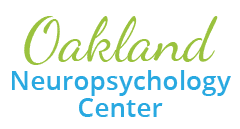Quite often, parents tell me that they suspect that while their child has a diagnosis of ADHD, they ‘feel there is something else’ interfering with learning or with their child’s ability to socialize. While teachers and even family members often agree with them, everyone finds it hard to ‘put their finger on it.’ For a number of children, a diagnosis of ADHD fully captures what is the main issue, while for a number of others, it only partially addresses the issues they struggle with day in and day out.
Did you know that for most children diagnosed with ADHD, there is often another condition present?
Approximately half are found to display challenging behaviors which may come across as ‘oppositional’ behaviors, at home or at school. Many times, these challenging behaviors represent underdeveloped skills and abilities that are often associated with ADHD, such as being unable to be flexible when faced with problems or frustrations, having a hard time managing their emotions right in the moment, or struggling to problem solve as well as most others their age. There are also a high number of children with ADHD who have specific learning disabilities affecting reading, writing, or math skills.
While they may be better able to focus after receiving appropriate treatment for their attentional problems, they continue to struggle to keep up the pace in class when it comes to schoolwork. Their academic needs go above and beyond helping them focus and stay on task. For a fewer number of children, anxiety and depression symptoms may also be present, alongside ADHD. These emotional problems often impact on their ability to focus.
If you have concerns or questions about ADHD and related conditions, or if you would like to schedule a time to speak with Dr. Beaulieu at Oakland Neuropsychology Center, call us at 248-644-9466 to schedule a consultation.



